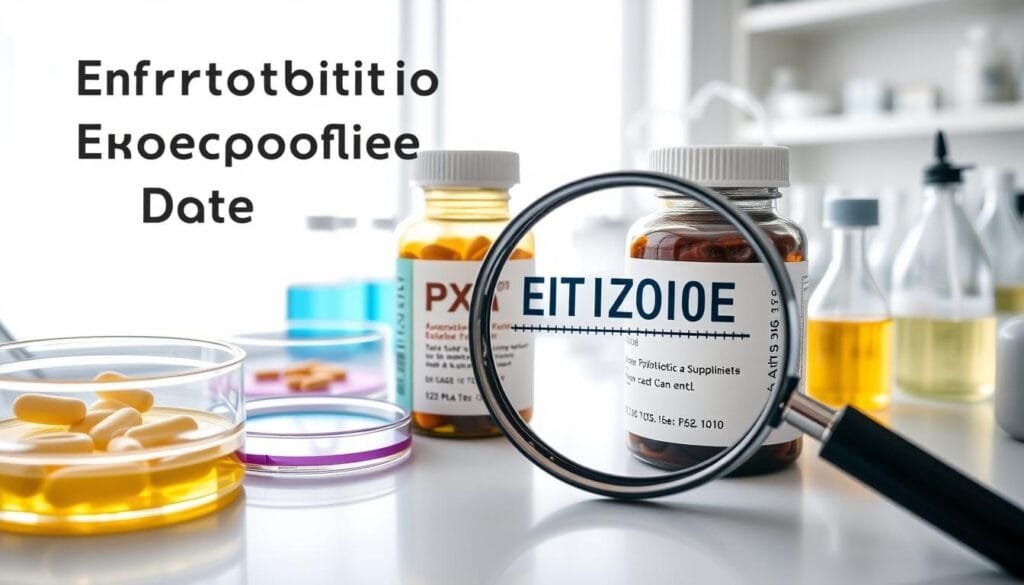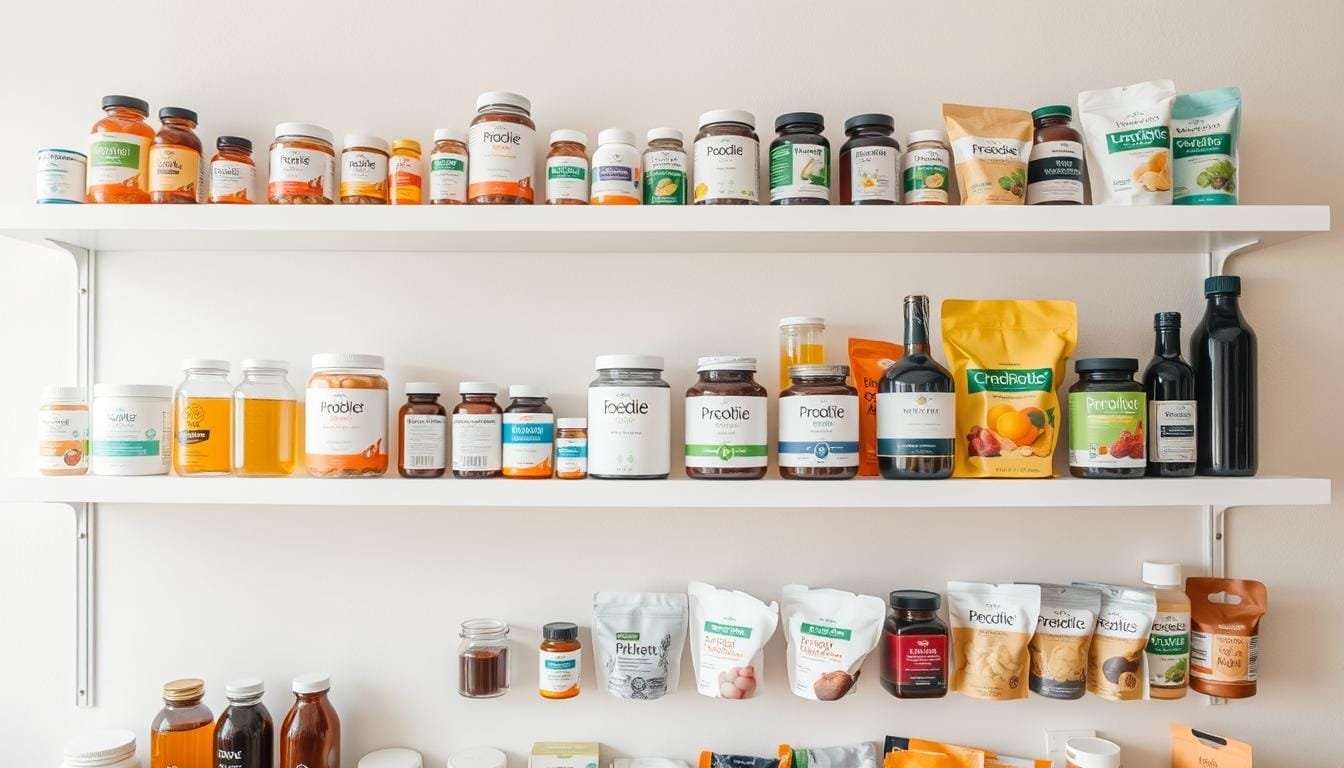Currently Empty: RM0.00
Maintaining gut wellness often starts with supplements, but their effectiveness depends on one critical factor: how long they stay potent. Those tiny capsules filled with live cultures or dietary fibers aren’t immune to time. Whether stored in a fridge or cabinet, their quality degrades gradually.
Ever found an old bottle tucked behind condiments? Many face this dilemma, unsure if expired products still work. Heat, moisture, and even oxygen can silently reduce their benefits. Manufacturers design these supplements to survive harsh stomach acids, but proper storage remains key to preserving their strength.
This guide breaks down the science behind expiration dates and storage best practices. Learn how production methods, packaging, and temperature affect viability. Discover practical tips to extend usability while avoiding wasted money or compromised results.
Key Takeaways
- Potency declines over time due to environmental factors like heat and humidity
- Refrigeration often extends effectiveness but isn’t always required
- Manufacturing dates matter more than expiration labels for some brands
- Look for blister packs or dark glass bottles for better protection
- Discard supplements showing discoloration or unusual odors immediately
Introduction to Probiotics, Prebiotics, and Their Shelf Life
Your digestive system houses trillions of microorganisms working daily to keep you healthy. Among these, live cultures and specialized fibers play starring roles – but their teamwork depends on proper care and handling.
What Are Probiotics?
These microscopic allies are living bacteria naturally found in fermented foods like yogurt or available as capsules. Strains like Lactobacillus and Bifidobacterium help break down food, absorb vitamins, and strengthen immune responses. Since they’re alive, their numbers gradually decrease over time, much like perishable groceries.
Defining Prebiotics and Their Role
Think of prebiotics as fertilizer for your gut garden. These non-digestible fibers from foods like garlic and bananas feed beneficial microbes, helping them multiply. Unlike their living counterparts, prebiotic supplements don’t contain organisms – just nutrients to support existing ones. This key difference affects how both should be stored for maximum impact.
Pro tip: Check labels for strain-specific storage instructions. Some cultures thrive in cool environments, while others survive shelf storage if kept dry.
Do Probiotics and Prebiotics Expire?
Time plays a crucial role in the effectiveness of gut health supplements. Those tiny capsules packed with beneficial cultures or fibers aren’t timeless – their ability to support digestion weakens as months pass.

Understanding Expiration and Effectiveness
Research involving 33 expired products revealed a stark reality. While 22 still contained live cultures, most had bacterial counts far below effective levels. Only five matched or exceeded their original potency claims.
This decline happens because live cultures, measured in colony-forming units (CFUs), gradually lose vitality. Lower CFU counts mean reduced capacity to colonize the gut and deliver benefits.
Non-living prebiotic fibers face different challenges. They typically outlast their microbial counterparts but can degrade when exposed to humidity or heat, losing their ability to nourish gut flora.
“Expiration labels don’t indicate danger – they signal diminished strength,” explains a microbiologist from a Kuala Lumpur research institute. A product past its date might still work, but likely at reduced effectiveness.
Multiple elements determine shelf life. Packaging quality, storage temperatures, and specific bacterial strains all influence how long supplements remain potent. Most companies set conservative expiration periods, usually 12-24 months from production. This ensures users receive products meeting guaranteed CFU levels at purchase.
Factors Affecting Probiotic Shelf Life
Environmental factors play a pivotal role in maintaining microbial vitality. While supplements promise gut health benefits, their success depends on overcoming real-world storage challenges. Let’s explore the invisible forces determining whether these microscopic allies thrive or fade.
Temperature Sensitivity and Environmental Conditions
Heat acts like a silent thief stealing bacterial potency. Studies show products stored at 4°C (39°F) retain therapeutic CFU levels for two years. Compare this to warmer environments:
| Storage Temperature | Viability Period | CFU Retention |
|---|---|---|
| 4°C (39°F) | 726 days | Above 80% |
| 30°C (86°F) | 180 days | 40-60% |
| 37°C (98.6°F) | 90 days | Below 30% |
Delicate strains like Lactobacillus lose viability faster in heat. Hardier varieties such as Bacillus tolerate fluctuations better. Always check labels for temperature guidelines – some formulations survive room conditions if kept dry.
Moisture, Packaging, and Label Instructions
Humidity triggers a triple threat: bacterial decay, chemical reactions, and mold growth. Advanced containers combat this with vacuum sealing and desiccant packs. Opaque bottles add UV protection, while foil barriers block oxygen.
“Moisture-proof packaging isn’t optional – it’s the difference between a thriving colony and a dead product,” notes a Kuala Lumpur microbiology researcher.
Strain-Specific Stability Details
Not all cultures share equal resilience. Spore-forming strains naturally resist harsh environments, while acid-sensitive types demand pH-balanced storage. Manufacturers often combine robust species with protective technologies to extend usability windows.
Storage Conditions and Best Practices
Proper storage transforms supplements from ordinary capsules into gut health guardians. While products vary, their effectiveness hinges on matching preservation methods to their biological needs.
Refrigeration vs. Shelf Stable Products
Delicate strains thrive in chilled environments. Those labeled require refrigeration often contain cultures vulnerable to heat. Manufacturers use freeze-drying technology for shelf-stable options, allowing microbes to remain dormant until consumption.
Check labels for clarity. Phrases like “store in cool, dry place” indicate room-temperature stability. Products sold in pharmacy coolers typically need consistent refrigeration. One microbiologist notes: “Shelf-stable doesn’t mean indestructible – it means smart packaging compensates for environmental stressors.”
Proper Methods for Maintaining Potency
Always follow printed storage instructions. Keep supplements in original containers – their materials block light and moisture. Avoid transferring pills to daily organizers unless consumed within hours.
Temperature consistency matters most. Repeatedly moving items between fridge and countertop stresses bacterial cells. For shelf-stable varieties, store them away from ovens or sunny windowsills. Dark cabinets work best.
When traveling, use insulated bags for refrigerated types. Shelf-stable options tolerate brief exposure to warmth if sealed properly. Remember: proper care ensures every capsule delivers its promised benefits.
Maximizing Probiotic Potency and Effectiveness
Smart storage strategies ensure gut supplements deliver their full benefits. Proper handling preserves microbial vitality and fiber quality, directly impacting their performance. Always start by reviewing the label instructions – manufacturers design these guidelines to match each product’s biological needs.
Tips to Extend Shelf Life
Blister packs outperform traditional containers by shielding individual doses. Unlike reusable bottles, these sealed compartments block humidity and oxygen. Research shows this method maintains potency 40% longer than loose capsules in humid climates like Malaysia’s.
| Storage Method | Protection Level | CFU Retention (12 Months) |
|---|---|---|
| Blister Packs | High | 85-90% |
| Pill Bottles | Moderate | 60-70% |
| Refrigerated Containers | Maximum | 95-98% |
Consistent temperatures prevent thermal shock to delicate cultures. Avoid placing supplements near kitchen appliances or bathroom sinks. A Kuala Lumpur microbiologist advises: “Daily organizers expose capsules to air repeatedly – keep them sealed until use.”
Purchase from retailers with climate-controlled storage. High turnover ensures fresher stock. Check manufacturing dates rather than relying solely on expiration markers for best effectiveness.
Scientific Insights and Research Findings
Cutting-edge studies reveal surprising truths about microbial survival in gut health formulations. Researchers now track how these microscopic allies withstand real-world conditions through advanced testing methods.

Research on Microbial Expiration
Clinical trials demonstrate that colony-forming units (CFUs) decrease by 15-30% annually in unopened containers. A 2023 Malaysian study tested 40 supplement brands:
| Encapsulation Type | 6-Month CFU Retention | 18-Month CFU Retention |
|---|---|---|
| Basic Capsules | 68% | 41% |
| Enteric Coated | 89% | 73% |
| Microencapsulated | 94% | 82% |
Dr. Aminah Yusof from Universiti Malaya notes: “Our findings show storage time affects viability more than expiration dates. Properly sealed products often retain therapeutic benefits beyond printed dates.”
Impacts on Microbial Counts
Higher CFU counts directly influence gut colonization success. Studies prove formulations with 50+ billion units create lasting benefits:
- Survive stomach acids better
- Outcompete harmful bacteria
- Support immune function longer
Manufacturers now use oxygen-absorbing packets and nitrogen flushing to protect microorganisms in products. These innovations help maintain potency while reducing waste from expired stock.
Wellness Concept: Expert Guidance and Customer Support
Navigating supplement choices becomes easier with trusted experts. Wellness Concept provides personalized advice to match health goals and storage needs. Their team helps select products that align with lifestyle factors and environmental conditions.
Connect Via WhatsApp for Instant Support
Reach specialists at +60123822655 for quick answers about storage methods or shelf life. Whether discussing gut health routines or product stability, queries receive same-day responses. This service ensures users make informed decisions about their wellness investments.
Operating Hours for Personalized Assistance
Support is available Monday-Friday (9:30 am-6:30 pm) and weekends (10 am-5 pm). These extended hours accommodate busy schedules while maintaining service quality. The team analyzes individual needs – from heat-sensitive products to fiber supplements – offering tailored storage solutions.
Wellness Concept combines scientific knowledge with practical care strategies. Their guidance helps maintain product effectiveness while supporting long-term digestive health. Trusted by Malaysian households, they transform complex science into actionable daily habits.
FAQ
How long do live cultures remain effective?
Most products have a shelf life of 12–24 months if stored properly. Over time, the number of viable microorganisms may decrease, especially if exposed to heat or moisture. Always check the label for specific expiration dates.
Should supplements be kept in the fridge?
Some formulas require refrigeration to maintain potency, while others are shelf-stable. Check the packaging instructions—heat-sensitive strains often need cooler temperatures, whereas freeze-dried options might stay effective at room temperature.
What environmental factors impact stability?
Humidity, light, and temperature fluctuations can degrade quality. Air-tight containers and dark, dry storage spaces help preserve bacterial counts. Avoid leaving bottles in bathrooms or near stoves.
Can storage methods extend viability?
Yes! Keeping products in their original packaging, away from direct sunlight, and at consistent temperatures slows microorganism loss. For refrigerated items, avoid frequent door openings to maintain cool conditions.
Do different strains have varying lifespans?
Absolutely. Certain species like Bifidobacterium are more fragile, while Lactobacillus may tolerate room temperatures better. Manufacturers often design blends with stability in mind—check strain-specific details on the label.
How does expiration affect health benefits?
Post-expiration, CFU counts drop, reducing potential gut support. While expired items aren’t harmful, their ability to colonize the digestive system diminishes. For optimal results, use before the listed date.
Where can customers get personalized advice?
Wellness Concept offers expert guidance via WhatsApp at +60123822655. Their team operates Monday–Sunday, 9:30 AM–6:30 PM, with weekend hours from 10 AM–5 PM. Reach out for storage tips or product recommendations!


